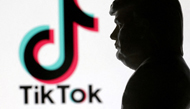▶ FRANK BRUNI
That was deliberate.
“It seems a little presumptuous, when you’ve got the land mass and the talent that we do, to ask for more,” he told me recently.
But there was an additional reason he didn’t mention God, so commonly praised in the halls of government, so prevalent a fixture in public discourse.
“I think you have to be very, very careful about keeping religion and politics separate,” Kerrey said.
We Americans aren’t careful at all. In a country that supposedly draws a line between church and state, we allow the former to intrude flagrantly on the latter. Religious faith shapes policy debates. It fuels claims of American exceptionalism.
And it suffuses arenas in which its place should be carefully measured. A recent example of this prompted my conversation with Kerrey. Last week, a fourth-year cadet at West Point packed his bags and left, less than six months shy of graduation, in protest of what he portrayed as a bullying, discriminatory religiousness at the military academy, which receives public funding.
The cadet, Blake Page, detailed his complaint in an article for The Huffington Post, accusing officers at the academy of “unconstitutional proselytism,” specifically of an evangelical Christian variety.
On the phone on Sunday, he explained to me that a few of them urged attendance at religious events in ways that could make a cadet worry about the social and professional consequences of not going. One such event was a prayer breakfast this year at which a retired lieutenant general, William G. Boykin, was slated to speak. Boykin is a born-again Christian, and his past remarks portraying the war on terror in holy and biblical terms were so extreme that he was rebuked in 2003 by President Bush. In fact his scheduled speech at West Point was so vigorously protested that it ultimately had to be canceled.
Page said that on other occasions, religious events were promoted by superiors with the kind of mass e-mails seldom used for secular gatherings. “It was always Christian, Christian, Christian,” said Page, who is an atheist.
Mikey Weinstein, an Air Force Academy graduate who presides over an advocacy group called the Military Religious Freedom Foundation, told me that more than 30,000 members of the United States military have been in contact with his organization because of concerns about zealotry in their ranks.
More than 150 of them, he said, work or study at West Point. Several cadets told me in telephone interviews that nonbelievers at the academy can indeed be made to feel uncomfortable, and that benedictions at supposedly nonreligious events refer to “God, Our Father” in a way that certainly doesn’t respect all faiths.
Is the rest of society so different?
Every year around this time, many conservatives rail against the “war on Christmas,” using a few dismantled nativities to suggest that America muffles worship.
Hardly. We have God on our dollars, God in our pledge of allegiance, God in our Congress. Last year, the House took the time to vote, 396 to 9, in favor of a resolution affirming “In God We Trust” as our national motto. How utterly needless, unless I missed some insurrectionist initiative to have that motto changed to “Buck Up, Beelzebub” or “Surrender Dorothy.”
We have God in our public schools, a few of which cling to creationism, and we have major presidential candidates — Rick Perry, Michele Bachmann, Rick Santorum — who use God in general and Christianity in particular as cornerstones of their campaigns. God’s initial absence from the Democratic Party platform last summer stirred more outrage among Americans than the slaughter in Syria will ever provoke.
God’s wishes are cited in efforts to deny abortions to raped women and civil marriages to same-sex couples. In our country God doesn’t merely have a place at the table. He or She is the host of the prayer-heavy dinner party.
And there’s too little acknowledgment that God isn’t just a potent engine of altruism, mercy and solace, but also, in instances, a divisive, repressive instrument; that godliness isn’t any prerequisite for patriotism; and that someone like Page deserves as much respect as any true believer.
Kerrey labels himself agnostic, but said that an active politician could get away with that only if he or she didn’t “engage in a conversation about the danger of religion” or advertise any spiritual qualms and questions.
“If you talk openly about your doubts,” he said, “you can get in trouble.”
To me that doesn’t sound like religious freedom at all.
스마터리빙
more [ 건강]
[ 건강]이제 혈관 건강도 챙기자!
[현대해운]우리 눈에 보이지 않기 때문에 혈관 건강을 챙기는 것은 결코 쉽지 않은데요. 여러분은 혈관 건강을 유지하기 위해 어떤 노력을 하시나요?
 [ 건강]
[ 건강]내 몸이 건강해지는 과일궁합
 [ 라이프]
[ 라이프]벌레야 물럿거라! 천연 해충제 만들기
 [ 건강]
[ 건강]혈압 낮추는데 좋은 식품
[현대해운]혈관 건강은 주로 노화가 진행되면서 지켜야 할 문제라고 인식되어 왔습니다. 최근 생활 패턴과 식생활의 변화로 혈관의 노화 진행이 빨라지고
사람·사람들
more
“발달장애인 음악으로 소통”
음악으로 세상과 소통하길 원하는 발달장애인들과 음악 전공 봉사자들이 함께하는 남가주 최초의 통합 오케스트라 ‘디스 어빌리티 오케스트라(This…

K 르네상스, ‘소노드라마’ 공연 예술축제
K 르네상스(회장 지나 김)가 지난 21일 로스카요테스 골프클럽 뱅큇룸에서 공연 행사를 성황리에 개최했다고 밝혔다. 이번 무대는 음악, 연극,…
국민회관서 한국어 교사 세미나
LA 총영사관과 세계한인교육자네트워크(IKEN), 대한인국민회 기념재단이 공동 주최한 한국어 교사 세미나가 지난 20일 국민회관에서 열렸다. …
온누리교회 바둑교실·서기회 4차 대항전
온누리교회 인싱크 노인대학 바둑교실반(회장 안상철)과 서기회(회장 임항균) 간 제4회 친선 바둑대회가 지난 17일 LA 작가의 집에서 열렸다.…
복면가수왕 노래 경연 내달 25일 LA 그리핀홀
LA 공연 문화협회가 주관하고 LA 동부한인회가 후원하는 ‘제1회 복면가수왕 노래경연 및 라이브 밴드 공연’이 오는 10월25일(토) 오후 2…
많이 본 기사
- 이민 단속 두려움에… “병원 못가고 경찰 신고도 꺼려”
- “결제한 크레딧카드 없으면 탑승 불가”
- 21세 되면 ‘에이징 아웃’으로 체류자격 상실… 합법비자 동반 자녀 구제한다
- 부부 관계도 중요한데… 목회자 아내가 원하는 것
- 전기차 충전 중 발화… 이웃 한인주택으로 번져
- 한국서 미국으로 국제우편 발송 재개
- “타이레놀 자폐와 연관”… 트럼프 발표 논란
- 한때 요정이었는데..슈, 충격적 비주얼
- 타운 최대 규모 ‘나리아파트’ 상대 집단소송
- 특검 “尹, 구치소에 24일 불출석 의사 전달…현명한 판단 기대”
- 필랜 한인 집주인 살해 용의자 법정서 무죄 주장
- ‘미우새’ 시청률 32% 찍은 ‘홍진영 언니’, 깜짝 근황..홍선영, ‘예비 신부’ 신지 옆 찰싹
- 중단됐던 지미 키멀 쇼 ABC “오늘 방송 재개”
- 내달부터 최대 425달러 대폭 인상 1
- 아마존, 프라임 회원 탈퇴 어렵게 ‘… 1
- 6가·맨해튼 주유소 부지 신축 아파트 들어선다
- LA 한인사회 찰리 커크 추모식
- 한인 여성, 위스콘신 주지사 도전
- 관세·노후화·인건비 ‘삼중고’… 차 수리비 최대 상승
- 우리 주는 얼마나 종교적인가?… 미시시피, 고신앙층 1위
- 지역·상황에 따라 은퇴준비도 달라져
- 버핏, BYD 주식 17년만에 전량 매각
- “이민단속 한인 대학생 석방 공화 하원의원 조용히 개입”
- [존청 변호사의 “경제·법률 핫이슈”] 소셜연금 수령 시 평생 손실 부르는 치명적 실수 4가지
- [리차드 호프만 변호사] “교통사고·상해 전문 ‘천재 변호사’… 노블레스 오블리주 실천”
- ‘팔’ 국가 인정 속속 동참… 이스라엘 강력 반발
- ‘아메리칸 드림’없이 미국이 다시 위대해질 수 있을까
- 밥 먹을 때 ‘이것’ 많이 넣으면 난청 위험 높아진다
- 죽은 커크, 보수 재결집 촉매 되나… 트럼프 “부흥회 같다”
- ‘이병헌♥’ 이민정, 내조의 여왕..남편 응원하며 “다리만 탄 건..”
- ‘스마트폰 하루 2시간 제한’ 조례 논란
- ‘1인 기획사 불법 운영’ 성시경, 논란 후 유튜브 재개.. “임슬옹에 너무 미안”
- 혀 옆면에 생긴 작은 궤양… 구내염 아니었다
- MD 엄마, 아들에 강도짓 10대에 … 1
- 12학년 읽기·수학 능력 ‘역대 최저’
- 가주 노동법에서 ‘전문직 면제’ 자격은
- 릴케와 카프카와 가을에 관한 명상
- 옆집 전기차 충전중 불길 번져 한인주택 전소
- “55세 이상, 통역관 고용 가능”
- 보아, ‘라이딩족 오빠’ 뉴스 등장에.. “진짜 갔네 이 인간” 시트콤 상황
- [Y CONNECT KOREA] 그리운 한국, Y CONNECT KOREA로 스마트 통신 준비!
- 샬롬 장애인 선교회 우간다 의료 선교
- [화요 칼럼] 내가 피카소 할애비다
- [지평선] ‘백번의 추억’이 가리는 것
- 비자 폭탄 부메랑?… “월가 은행들, 인도서 채용 늘릴지도”
- “일부 식품점서 맥주·와인 판매”
- 한미은행, 한국 중소기업 설명회 참가
- 수입물가 예상 밖 상승… 전월비 0.3%↑
- “한푼이라도 아끼자”… 쿠폰·포인트 사용↑
- 불화 트럼프-머스크 화해? 커크 추모식서 만나 ‘악수’
1/5지식톡

-
 ACSL 국제 컴퓨터 과학 대회, …
0
ACSL 국제 컴퓨터 과학 대회, …
0웹사이트 : www.eduspot.co.kr 카카오톡 상담하기 : https://pf.kakao.com/_BEQWxb블로그 : https://blog.naver.com/eduspotmain안녕하세요, 에듀스팟입니다…
-
 바디프렌드 안마의자 창고 리퍼브 세…
0
바디프렌드 안마의자 창고 리퍼브 세…
0거의 새제품급 리퍼브 안마의자 대방출 한다고 합니다!8월 23일(토)…24일(일) 단 이틀!특가 판매가Famille: $500 ~ $1,000Falcon: $1,500 ~ $2,500픽업 & 배송직접 픽업 가능LA…
-
 바디프렌드 안마의자 창고 리퍼브 세…
0
바디프렌드 안마의자 창고 리퍼브 세…
0거의 새제품급 리퍼브 안마의자 대방출 한다고 합니다!8월 23일(토)…24일(일) 단 이틀!특가 판매가Famille: $500 ~ $1,000Falcon: $1,500 ~ $2,500픽업 & 배송직접 픽업 가능LA…
-
 미주 한인 세무사 전국 대회- 20…
0
미주 한인 세무사 전국 대회- 20…
02025 전미한인세무사협회 컨퍼런스2025 THEME: Navigating New Frontiers(국제조세, 부동산투자, 블루오션 시장이라는 키워드를 아우르면서, 세무사들이 기존의 영역을 넘어 새로운 기회를 탐색…
-
 애틀랜타/조지아로 이사 예정이신가요…
0
애틀랜타/조지아로 이사 예정이신가요…
0
케이타운 1번가
오피니언
 노세희 부국장대우·사회부장
노세희 부국장대우·사회부장 ‘아메리칸 드림’없이 미국이 다시 위대해질 수 있을까
 민경훈 논설위원
민경훈 논설위원릴케와 카프카와 가을에 관한 명상
 한형석 사회부 부장대우
한형석 사회부 부장대우 6가 ‘차 없는 거리’ 주체적 참여를
 로라 김 서예가·시인
로라 김 서예가·시인 [화요 칼럼] 내가 피카소 할애비다
 조철환 / 오피니언 에디터
조철환 / 오피니언 에디터 [지평선] ‘백번의 추억’이 가리는 것
 김평엽
김평엽 태양의 지문
 옥세철 논설위원
옥세철 논설위원‘국방부’가 아닌 ‘전쟁부’인 이유는…

미국농지를 사들이는 까닭은…
 조지 F· 윌 워싱턴포스트 칼럼니스트
조지 F· 윌 워싱턴포스트 칼럼니스트 [조지 F. 윌 칼럼] 진지함을 찾아볼 수 없는 대통령
1/3지사별 뉴스

‘호주 전용 전문직 취업비자’ 대상에 한국인 포함 법안 재추진
E-4에 E-3 추가 투트랙 진행이민당국의 조지아주 현대 전기차 배터리 공장 단속 사태에 따른 후폭풍이 거세게 일고 있는 가운데 호주 전용 전…
H-1B 비자 수수료‘10만달러’로 ‘100배 폭탄’에 빅테크 초비상

버지니아, 성적 착취 처벌 강화
버지니아주가 성적 착취 처벌을 대폭 강화한다. 글렌 영킨 주지사는 지난 15일 웬델 워커 주하원의원(공화, 린치버그)가 발의한 ‘섹스토션(Se…
“일부 식품점서 맥주·와인 판매”

5만평방피트 메가마트 24일 이스트 팔로알토에 오픈
지난 3월 댈리시티 세라몬테 샤핑센터에 문을 연 대형 한국식품점 자갈치를 소유한 메가마트가 오는 24일(수) 이스트 팔로알토에 5만 평방피트의…
22일 버클리서 규모 4.3 지진

오늘 하루 이 창 열지 않음 닫기 



















































.png)


댓글 안에 당신의 성숙함도 담아 주세요.
'오늘의 한마디'는 기사에 대하여 자신의 생각을 말하고 남의 생각을 들으며 서로 다양한 의견을 나누는 공간입니다. 그러나 간혹 불건전한 내용을 올리시는 분들이 계셔서 건전한 인터넷문화 정착을 위해 아래와 같은 운영원칙을 적용합니다.
자체 모니터링을 통해 아래에 해당하는 내용이 포함된 댓글이 발견되면 예고없이 삭제 조치를 하겠습니다.
불건전한 댓글을 올리거나, 이름에 비속어 및 상대방의 불쾌감을 주는 단어를 사용, 유명인 또는 특정 일반인을 사칭하는 경우 이용에 대한 차단 제재를 받을 수 있습니다. 차단될 경우, 일주일간 댓글을 달수 없게 됩니다.
명예훼손, 개인정보 유출, 욕설 등 법률에 위반되는 댓글은 관계 법령에 의거 민형사상 처벌을 받을 수 있으니 이용에 주의를 부탁드립니다.
Close
x